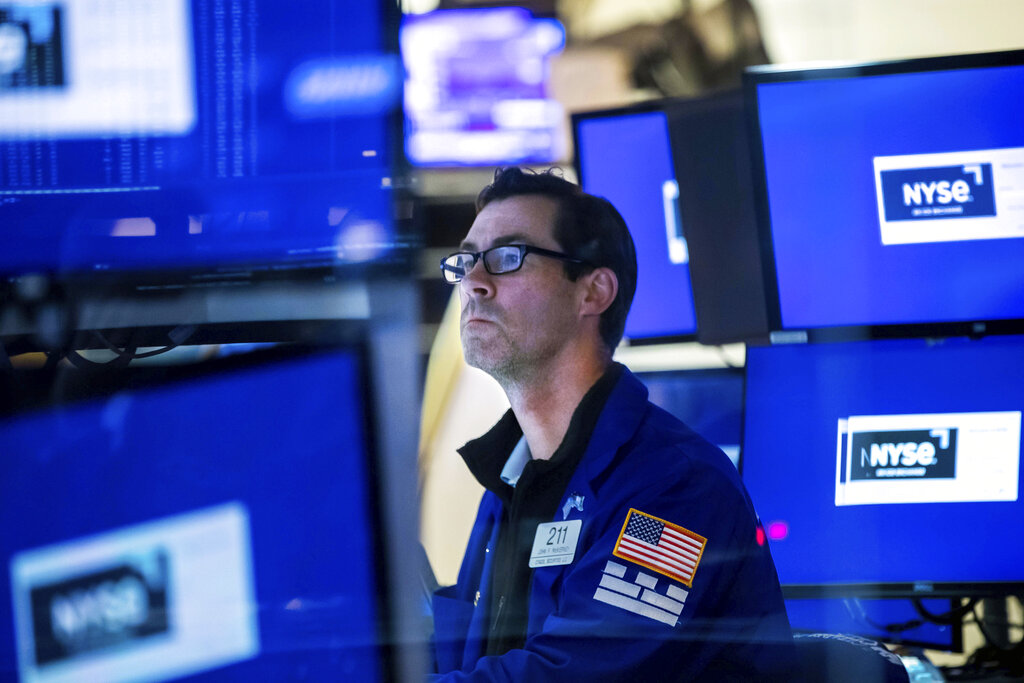EU ban sends oil close $120 a barrel, US stock futures slip
NEW YORK (AP) — U.S. markets headed lower before Tuesday’s opening bell after the European Union agreed to embargo most Russian oil imports by the year’s end, sparking a fresh spike in oil prices.
Futures for the Dow Jones Industrial Average slipped 0.6%, and the S&P 500 ticked down 0.5%.
Oil prices, up almost 60% this year, rose another 3% and neared $120 per barrel early Tuesday after the EU said it would embargo most Russian oil imports because of its brutal invasion of Ukraine.
The pact was worked out at a summit focused on helping Ukraine with a long-delayed package of new financial support. The embargo covers Russian oil brought in by sea, allowing a temporary exemption for imports delivered by pipeline. That was crucial to bring landlocked Hungary on board, a decision that required consensus.
Benchmark U.S. crude oil gained $3.52 to $118.59 per barrel in electronic trading on the New York Mercantile Exchange. It added 98 cents to $115.07 per barrel on Monday.
Brent crude, used as the basis for pricing for international trading, advanced $1.72 to $119.32 per barrel.
President Joe Biden will meet with Federal Reserve Chairman Jerome Powell on Tuesday as soaring inflation continues to carve up Americans’ earnings.
The meeting Tuesday will be the first since Biden renominated Powell to lead the central bank and weeks after the Senate confirmed a second term. The White House said the pair would discuss the state of the U.S. and global economy and especially four-decade high inflation, described as Biden’s “top economic priority.”
The current spate of inflation, however, is global. Inflation in the 19 countries that use the euro currency hit a record 8.1% in May amid surging energy costs prompted in part by Russia’s war in Ukraine, authorities said Tuesday.
Inflation in the eurozone is now at its highest level since recordkeeping for the euro began in 1997.
Germany’s DAX lost 0.8% and the CAC 40 in Paris declined 1%. Britain’s FTSE 100 gained 0.4%.
China’s easing of anti-virus curbs on businesses in Shanghai and Beijing has raised hopes for stronger growth in the world’s second-largest economy.
An official survey of showed factory activity picking up in May though still below the level of 50 indicating expansion on a scale up to 100. The main manufacturing purchasing managers index, or PMI rose to 49.6 from 47.4 in April.
More factories, shops and other businesses are being allowed to reopen this week in Shanghai and in the Chinese capital, Beijing, after authorities declared outbreaks under control.
The Shanghai Composite index gained 1.2% to 3,186.43 and Hong Kong’s Hang Seng surged 1.4% to 21,415.20.
Tokyo’s Nikkei 225 lost 0.3% to 27,279.80, while the Kospi in Seoul gained 0.6% to 2,685.90.
Australia’s S&P/ASX 200 lost 1% to 7,211.20. Shares rose in Taiwan but fell in India.
Wall Street is coming off its first week of gains in two months as investors were relieved that Commerce Department data showed U.S. inflation decelerated to 6.3% over a year earlier in April, its first decline in 17 months.
But worries remain over whether the Fed can control inflation that is running at a four-decade high without tipping the biggest global economy into recession.
Crude oil prices are up 60% this year due to fears about disruptions in supplies from Russia, the second-biggest global exporter. Wheat prices are up about 50% and corn prices are up 30%.
In other trading, the dollar rose to 128.18 Japanese yen from 127.55 yen late Monday. The euro fell to $1.0712 from $1.0778.
Shares in consumer goods giant Unilever jumped about 6.5% after the company named activist investor Nelson Peltz to its board. Peltz had built up a stake in the maker of Dove soap and Ben & Jerry’s ice cream.
